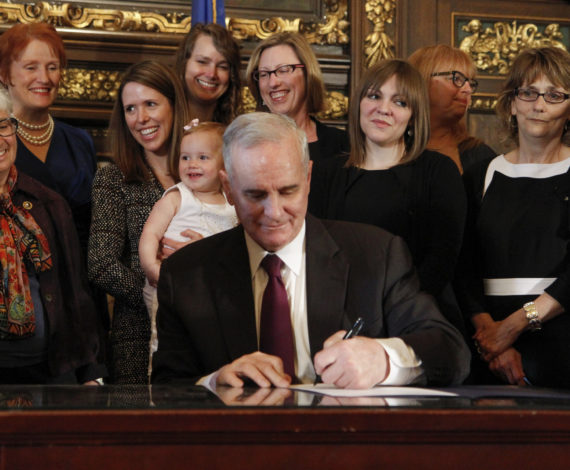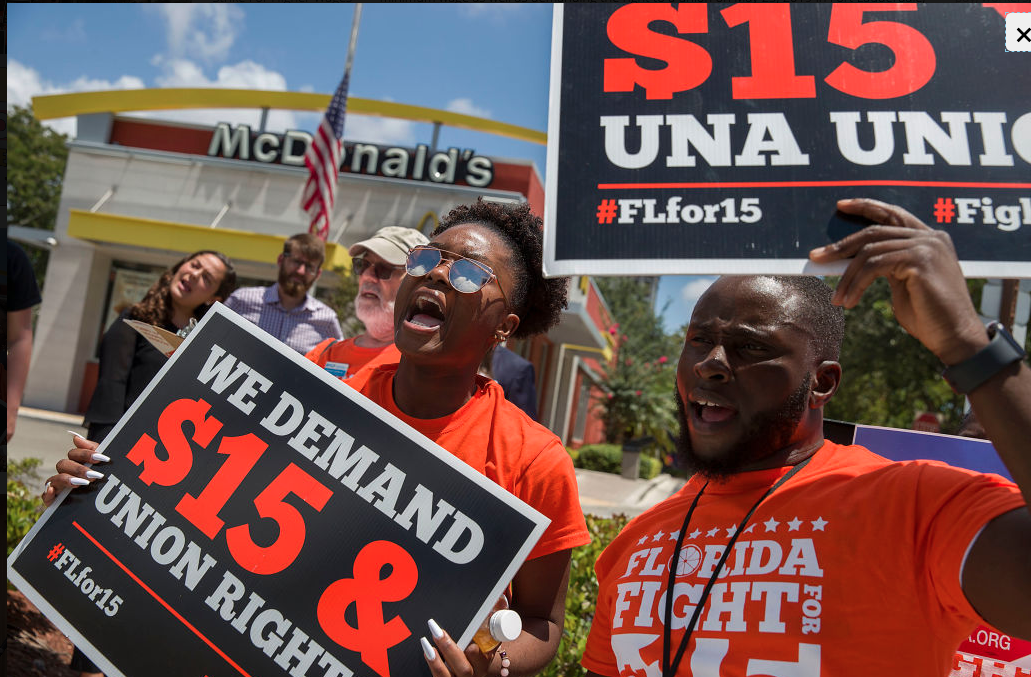
On Black Women’s Equal Pay Day, time to do something about atrocious wage disparity.
Today is Black Women’s Equal Pay Day, the day that Black women’s earnings catch up with the earnings of white men from last year. That means that Black women had to work all of 2019, plus 8 ½ months of 2020 to earn the same amount that white men earned in 2019.Over the course of a 40 year career, this adds up to an average loss of $900,000. This is not an accident — it’s a profound display of the ways that anti-Black racism and sexism intersect to create lasting economic inequalities unique to the experience of Black women in America.

Written August 13, 2020 by Erin Maye Quade, Gender Justice Advocacy Director, for the Minnesota Reformer.
Enslaved Black people built the wealth of this country, in part through white slave owners forcing Black women to give birth to children who could be bought and sold to sustain a free labor force. In exchange for this labor, Black women were abused, discriminated against and denied economic opportunity even after Emancipation. Given this history, it is not at all surprising that Black women still bear some of the heaviest burdens of economic disenfranchisement in this country. Over 80% of Black women are the key breadwinners for their families, yet Black women’s median wages lag behind white men’s wages by over $23,000 annually. If we closed that gap, Black women working full time jobs could afford two and half years of childcare, three years of food, or over a year’s worth of health insurance premiums.
This year, I feel particularly called to shine a light on the shocking wage disparity, not just because I’m a Black woman, but because I’m a Black woman living in Minnesota. Minnesota has the worst racial disparities between white and Black residents in the entire nation. Fully half of Minnesota’s Black workers are now unemployed. While some may be quick to attribute that appalling statistic to the impacts of COVID-19, the poverty rate for Black people in Minnesota was already over four times the rate of poverty in white communities before the pandemic.
With women significantly outnumbering men in COVID unemployment figures, we can be sure that Black women are being hit particularly hard by the virus’ social and economic consequences. When you add chronic underinvestment in our communities, frequent fear of police violence, lack of access to capital, and the devastating impact of air and water pollution on our children, it’s clear our society has not set Black women up to even survive, much less thrive.
This is not an issue of not working hard enough or not following the right career path. Salary gaps are the result of centuries of economic and social oppression, and governments and private sector employers that continue to favor white Americans at the expense of Black people — and Black women in particular.
Recognizing Black Women’s Equal Pay Day is not a day to simply add to a long-running list of injustices that Black people face in Minnesota and across the country. It’s a day to make real commitments to economic justice and envision a world where community wealth and economic security are the norm for Black people.
Righting the wrongs of this country’s historic disinvestment in Black women’s economic opportunity will be a long, sustained effort. Here are some places we can start:
- Equal pay for equal work: There is no reason that Black women should be paid less for doing the same job as white men. Jobs that have been traditionally held by women (e.g. nurses, teachers, caretakers) have average lower salaries than jobs requiring similar work or skill-level often held by men.
- Transparency around employee salaries. Companies should be required to conduct audits around salary pay, take actions to fix those gaps, and repay workers the wages that have been stolen from them.
- Salary history bans. In a world that systematically underpays Black women, companies should not be allowed to ask job candidates for past salaries so they can base their offers on existing pay inequalities. Research shows that salary history bans make significant progress toward closing pay inequalities for women and Black employees.
Black women don’t need to be told that we’re not equally valued in our workplaces and communities —we live this reality every day. It’s time for our society to actually listen to us, honor our experiences, remove barriers to economic opportunity, and equitably distribute resources. Pay equity for Black women is not about putting a specific price tag on our labor; it’s about recognizing all the ways we have not been allowed the basic opportunity to care for ourselves and our families because of the racism and intentional devaluing of our time and work. It’s about fixing the problem, and attending to the harm. Pay equity is about building community wealth, ensuring we have the same opportunities as everyone else to live in safe communities with healthy families, and to be certain that our children will be able to do the same.
Related Work
